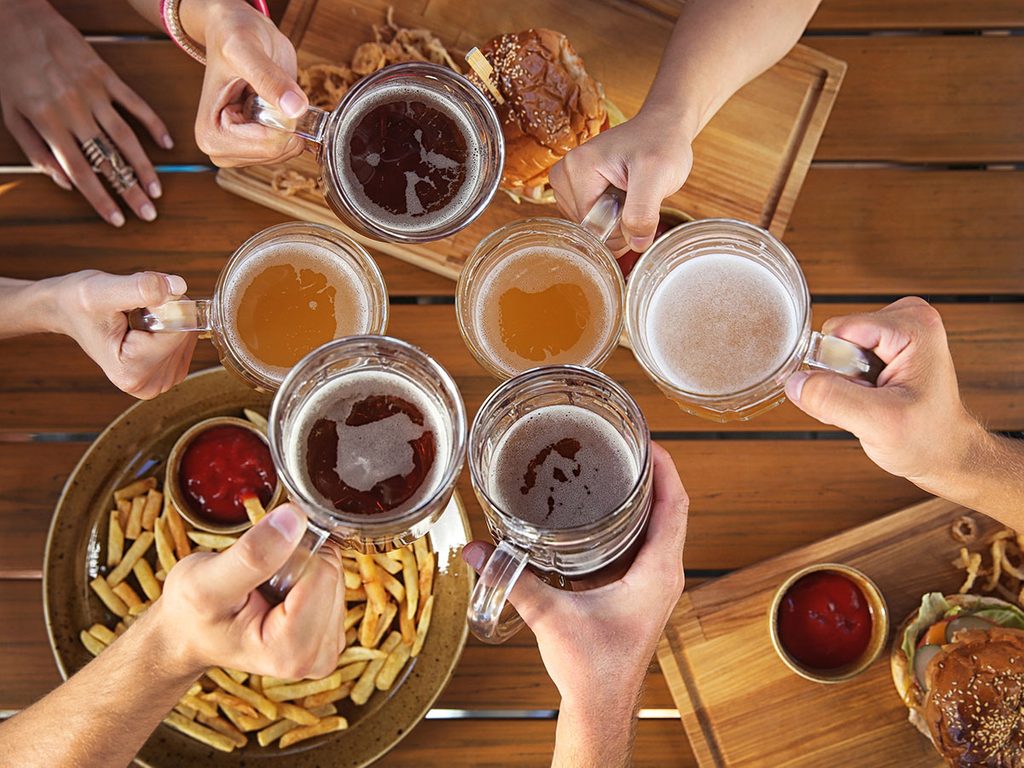Here’s Why Drinking Alcohol Can Make You Hungry

This is why a couple rounds of beer at a bar may lead to ordering hot wings, mozzarella sticks, and loaded potato skins.
The growling of your tummy isn’t just in your head (or belly) after you’ve had an adult beverage or two. Drinking alcohol really can make you hungrier, according to a 2017 study conducted by the Francis Crick Institute in the UK. It may be why that glass of red wine or vodka soda often causes you to crave munchies.
The two-year investigation, published in Nature Communications, looked at how ethanol alcohol affects the body, brain, and actions of mice. The mice were given the equivalent of around a-bottle-and-a-half to two bottles of wine over a three-day period. The alcohol fired up certain neurons, called AgRP, located in the hypothalamus, which not only increased appetite, but also decreased metabolism and energy levels. They believe a similar reaction happens in humans.
(Psst: Check out the celebs who don’t drink alcohol.)
“Our study clearly shows that the main area of the brain responsible for eating (the hypothalamus and its AgRP neurons) is directly affected and excited by ethanol, and that mice respond very strongly to its exposure by overeating for several hours afterward,” according to the study co-authors. The researchers repeated the experiment again, but this time blocking the AgRP neuron signals, and found that the mice ate less, which suggests that the AgRP neurons may influence binge eating when binge drinking. While not yet studied, the researchers also believe that dopamine might also be affected in a similar way, contributing to overeating when drinking alcohol. (Psst: Did you know there’s a plant that may help curb your alcohol cravings?)
So what could this mean for you?
The finding suggests that the more you drink, the hungrier you will be, and the more you will want to eat. According to the National Institute on Alcohol Abuse and Alcoholism, binge drinking is defined as a pattern of behavior that boosts blood alcohol concentration above .08 grams per deciliter. That’s about four drinks for women and five for men in a two-hour period. (Here’s what you need to know about alcohol and blood sugar level.)
“Avoid binge drinking if you want to avoid binge eating,” say the study authors, who also believe that there may be a link between binge drinking and obesity. “Binge drinking and obesity are typically thought of as two separate societal problems, but why does this happen all over the world and what is making us do this?” they ask. “It is too easy to believe that one cannot lead to the other, and that this correlation does not involve the brain somehow.”
More research is underway, but as of now, it’s a good idea for many reasons to drink less and exercise more.
If you do go out and have one too many drinks, here are some tips for curing a hangover every woman should know.




